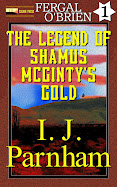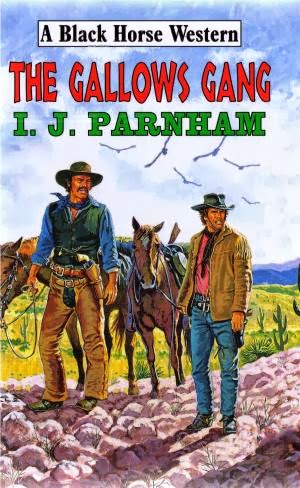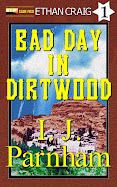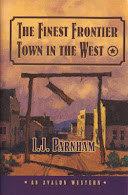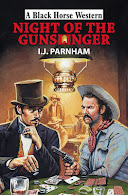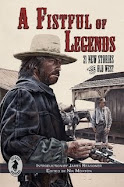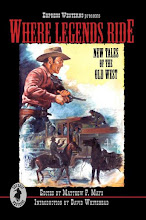With the conclusion to the time-travel cop show Ashes to Ashes imminent I guess now is the time for me to do what many people are doing and put in writing my guess on how the franchise's many mysteries will be resolved, all done with the full acceptance I'll be completely wrong.

But before I get it wrong, I'll go back in time myself to look at the evolution of the 5-part series, which has been something of a mixed bag. Life on Mars started strongly with a superb and consistent first series that did everything right. It had interesting stories, great characters, a seemingly effortless mixture of comedy and drama, a dash of sci-fi, and most importantly it had charm. Series 2 repeated the formula and it got most things right, but some of the charm had worn off, and the series devoted too much time to unsubtle comedy and a drawn-out set-up to the conclusion.
Then Ashes came along and the franchise fell down a big hole in the ground. The first few episodes presented some of the most dire sights I've ever willingly sat through and even the makers' later claim that they were being bad deliberately to send-up 80s cop shows didn't help to dull the pain of seeing Gene Hunt shooting up half of London without hitting anything from the back of a slow speedboat to the tune of No More Heroes. If nothing else this proved that being bad deliberately is a bad idea, although they then had to make Bonekickers to confirm it.
Thankfully series 1 improved as it went along and strangely it had enough rough and ready charm to be entertaining, which I guess is all you can ask for. Series 2 improved massively by addressing most of the things that were wrong with series 1. It wasn't as strong as either Mars series, but it could have been with a better conclusion to the mysteries of Summers and Operation Rose, something that doesn't bode well for the end to the inconsistent series 3. Several episodes this series have been even worse than the early Ashes episodes by committing the worst sin of all, being boring. But also several episodes, most notably the Litton one, have been as good as anything Mars managed.
So, how will this inconsistent but entertaining show end? The short answer is I don’t care. I did once, but not any more. I don’t mean that in a bad way as it's not stopping me speculating. It's just that the show has changed direction so many times I'm just going along for the ride now. In fact I'd suggest that the 5-part series has actually worked its way towards five different endings, and that's about four too many for me. Worse, we've been promised that the ending is so 'bonkers' nobody will have figured it out, and if that turns out to be the case, I think the point of the show has been lost somewhere along the way.
When Sam Tyler got run over ten minutes into episode 1 of Life on Mars and woke up in 1973 it was clear where the show was going. He was in a coma in the present day and his unconscious mind had created a dream world to keep his brain active and help him wake up. That was it, no mystery, no complexity. In every episode doctors talked to him through the radio and tv, and it was clear they would get him to wake up when the show had run its course. But then the writers started reading what viewers thought about the story. To their surprise, fans were debating what it all meant. It was never supposed to be a mystery and yet many viewers thought there was one. So series 2 tried to make more of a mystery out of the question of whether Sam was in a coma, back in time, or gone mad. The franchise format of minuscule plot development in the opening and closing minute was born as it tried to work towards something more mysterious and meaningful than just Sam waking up.
This ultimately worked because it directed the show to what was for me the best finale to any tv series. Sam woke up, found that real life wasn't as much fun as being dead, and so he killed himself to snog Annie and suffer one last bit of abuse from Gene. That was emotional, daring, and it didn't stand up to even a moment's thought, but it was perfect. Later I found out that many people viewed the ending differently: Sam hadn't woken up at all. When he found that he couldn’t feel pain he realized he was still in a coma and so he returned to the more exciting coma dream. That wasn't so emotional, but it didn’t matter. The final shot of the series had the Test Card Girl switching off the screen from the other side and so telling us not to fret about what it meant, it was only a tv series and we hope you enjoyed it. And I had.
Sadly though Life on Mars had only the two series. It's always assumed John Simm didn’t want to do any more and so with show ending too quickly Ashes was born, created on the unlikely premise that Sam's psychologist Alex Drake also falls into a coma and she recreates Sam's world. This required a change of focus with Alex creating versions of Gene, Ray and Chris from a female viewpoint and by making explicit the minor Mars theme that the dream world provided a form of past-life regression therapy. In a coma and hovering between life and death, the mind recreates a key past incident to resolve any outstanding issues and so make sense of the individual's existence prior to moving on. Freed from external stimuli the brain can rediscover forgotten memories and make connections it could never have formed when awake, and so like Sam and his troubling issues with his father, Alex resolves her parental issues.
This was still a clear and interesting idea, but then, with Ashes getting an extension beyond one series and with this theme being exhausted, for series two the show looked around for another direction. Rather than opting to be just a simple, fun, nostalgic cop show, the makers decided that the fans enjoyed the mystery aspect of the format more than the cop show aspect. So they chose to go down the same route as Lost had and pile mystery on top of mystery on top of mystery, which would have been fine if made to work, but I don't think this decision played to the makers' strengths. Ashes' muddled, slow, confusing complexity wasn't as much fun as the simple, controlled purity of the Mars concept, and accordingly the arrival of Summers, another coma victim, shifted the emphasis from the dream world being something Sam and then Alex had created to it being real. By the end of the series, Summers could still have been a character Alex had dreamed up, but it felt as if the dream world had been reshaped into an alternate reality that people in comas visit. Series 3 has shifted the focus again to this alternate world not just being real, but to Gene Hunt being the reality's crucial element, perhaps even its very reason for existing.
As this is at odds with how the show started, I'm no longer obsessed with finding out the latest explanation of the who, what, why and how, other than for it to leave the ending to Life on Mars intact that Sam chose death over life because it was more fun. But clearly there is an ending to come that is being worked towards very slowly with liberal red herrings, massive plot holes, and much misdirection. And the ending has to be a simple one to work within the confines of a popular tv series. The implications are probably that Gene is the dead copper. He's lain buried for forty years, his story unknown and untold. Now that Nelson's babbling and Keats' vendetta is drawing everyone back to Manchester he's about to be dug up, so he's restless and with Alex and Sam being close to death, they've seen him leading the life he would have led if he'd not been killed, his ghostly form oblivious to the fact his earthly form died. His last sight before being buried was the stars above and that is what everyone will see when his body is uncovered and his bones are finally put to rest with his story now known. So in the end it wasn't Sam's world or Alex's, but Gene's, and this was his story of his life that never was and his death that should never have been, all played out in a world that others can visit to replay their own deaths, seek redemption from their perceived failings, find affirmation of their worth, and resist the evil temptations of Keats prior to moving on to the great unknown... or something equally silly. And that's the problem.
We've been promised bonkers and as we're being led towards variations on those themes, it has to be something different and bizarre such as the Wizard of Oz, Alice in Wonderland and Blade Runner references meaning something along the lines of them all being replicants on a generational starship who are the victims of secret government experiments, or as some fans have suggested: variations of the Jacob's Ladder solution of a dying dream within a dream. But then again the claim that the ending is bonkers should perhaps be taken with a pinch of salt because every twist in the series so far has turned out to be less interesting than expected. On that basis it could be the most mundane solution possible that Gene accidentally killed the copper when he set fire to Sam's car while feigning his death and on discovering his guilty secret Alex will then wake up to find out that everything that's happened for the last five years, even getting badly hurt and going into a coma, was just a dream.
Having said that I reckon the writers are better than that and so I'm drawn towards thinking that Ashes has shown one consistent clever element to the plotting of displaying huge plot holes in full view but then later filling them, such as desk sergeant Viv leading the riot squad in episode 6, but then later showing that he did that because he was corrupt. Ashes started with an illogical plot hole of Alex visiting Sam's world, so the answer could be to fill that hole. The Alex we saw for about five seconds in episode 1 was in a coma, but she was in a completely different coma to her main coma and to the other coma to which she possibly awoke at the end of series 2. So that comatose Alex could be the only real character in the whole show. The dead copper is the real Sam Tyler and she's been uncovering the truth about his death in a car accident by dreaming both Life on Mars and Ashes, and Sam and Gene and everyone else exist only in a dream within a dream within a... oh, why am I bothering? If there's no way you can work it out, why try?
I'll cut to the chase. If I have to guess not what the makers will provide as an ending, but the ending I want, then I'll stick with the ending I've always thought the show required from the very start, the most simple one, the one where we take everything we've seen at face value and there's no twists, no surprise revelations, no lessening of the emotional impact through clever reveals: Alex fell into a coma after an unfortunate accident. And so did Sam. She's dreaming everything and making connections and solving crimes with her half-dead mind based on Sam's file, the files she's read in the police archives and the news reports she overhears on the tv. She'll solve the crime that led to the copper, who could be the real Gene, getting his face blown away then buried and it'll turn out that the Gene we've seen is like the clown from series 1, a manifestation she's created to guide her to the truth about his real death. It'll end with her giving bad clown Keats a good kicking, the bit part characters a thank you for their help in piecing together the truth, and Gene's bones eternal peace, probably by doing the cradling at the point of dying thing. And then she'll properly wake up in the real world. Molly is waiting, all spookily grown-up. She'll walk out of the hospital, happier and wiser and knowing she's a damn fine detective for solving a real crime while comatose, and then something needlessly goofy and cryptic will happen like Gene's face appearing on a tv screen... And just when we're all boggling about what it means some flaming twonk of a BBC continuity announcer will drown out the last words, an animated ident for the nonsense on next week will dance around the screen, and the plug for the last sing-along-a-Gene 80s special will scrunch the screen up. Or maybe that only happens on Doctor Who.
But I won’t mind how nonsensical or cryptic or mundane the ending is. Series 1 of Life on Mars is already sitting beside the tv and next week I'll be watching it from the start, again.







